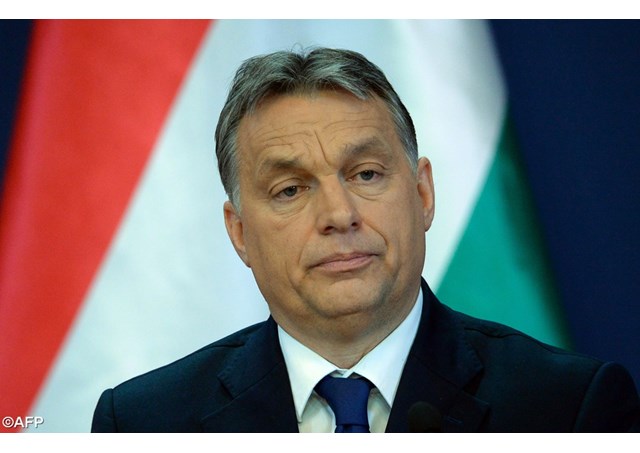
EU concerned about Hungary-Russia nuclear deal

(Vatican Radio) The European Union has launched an investigation into a controversial multi-billion-dollar nuclear energy deal, between Hungary and Russia, amid concerns over fair competition and Moscow's alleged attempt to break the fragile unity in Europe.
Listen to the report by Stefan Bos:
An EU procedure is the latest setback for Hungarian Prime Minister Viktor Orbán, after he his rightwing Fidesz-KNDP alliance lost its two-third super majority in Parliament.
The European Commission, the EU's executive, said its services are investigating whether Hungary violated European rules by allowing a Russian state-owned company to design, build and maintain two 1,200-megawatt reactors at Hungary's only nuclear power plant in the town of Paks, 120 km (75 miles) south of Budapest.
The subsidiary of the Russian atomic energy company, Rosatom, involved in the project has been linked to Russian President Vladimir Putin's allies, who have been put on a Western sanctions list over their alleged role in the conflict in Ukraine.
EU COMPLAINS
EU officials complain that Orbán inked the deal with Putin without a proper tender procedure while many details remain a secret.
In exchange for the agreement, Moscow has offered to finance roughly 80 per cent of the project with a loan of some 10 billion euros ($12 billion).
The probe could lead to procedures that involve possible halting the project, fines or possible cuts in financial aid to Hungary.
However Hungary's centre-right government has denied it has broken EU laws, calling the issue "a sovereign matter" and defending its decision to invite Putin earlier this month, despite EU sanctions against Russia.
THANKING RUSSIA
Orbán also reminder his nation to, in his words, "always thank Russia when switching on the light" as 80 per cent of energy supplies come from that nation.
Western diplomats have also suggested that Russia is "looking for ways to break the unity of Europe" targeting the weaker states, with Hungary and Bulgaria having energy needs, while Greece needs financial assistance. "It is all part of the Russian design,” a Western diplomat told the Russia Direct website.
That concern is shared by Eduard Hellvig, a conservative European parliamentarian who has been chosen by Romania's President Klaus Iohannis to be the next chief of the Romanian foreign intelligence service.
He has warned of a “threat for the EU” from the rapprochement of Hungary with Moscow.
The EU probe into Hungary's dealings with Russia also follows protests against the pro-Russian policies of Orbán, who has called Russia among the role models for creating what he calls an "illiberal" state.
MEDIA CRACKDOWN
He has also been criticized over a perceived crackdown on media, human rights groups, as well as threatening the independence of the judiciary, central bank and even churches.
On Sunday, Orban's ruling Fidesz party lost its two-third majority in Parliament, amid political infighting and corruption scandals.
Orban had hoped to replace a parliamentarian who became European commissioner with a party ally, but instead most voters in the city of Veszprém chose the leftist opposition backed candidate Zoltán Kész.
"From 2015, February 22, the ruling party lost its two-third majority in Parliament," he said to loud applause and shouts of joy from supporters. He warned Orbán he and others want to work for the people and that "its over with the robbery" of the country.
While opinion polls show one million voters have abandoned him, for now Orbán plans to fulfill his mandate until the next elections in 2018.
| All the contents on this site are copyrighted ©. |


